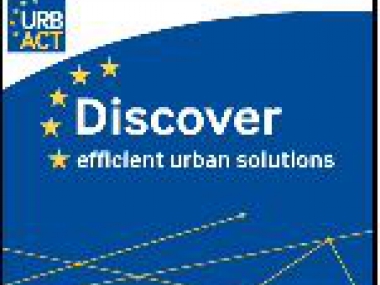New Results of URBACT Projects Now Available!
Edited on
09 October 201720 URBACT projects are going to complete their programme of exchange and learning activities by July 2010. The project partners have been working relentlessly for three years looking for joint, effective and sustainable solutions to major urban challenges. These projects have brought to light solutions that have proven effective and providing valuable support for policy makers and practitioners involved in tackling these challenges. Each project will publish in the coming weeks their final publications and recommendations. Here is a look at the first project results and outputs!

HerO - 'Heritage as Opportunity'
The cultural heritage of historic cities not only has a role to play in making these cities attractive, it must also adapt to new economic, demographic and environmental challenges. For a long time, cultural heritage was managed as a separate subject, but today, it needs to be integrated into the overall city development policy. The nine partners in the HerO project set out to facilitate the balance between preserving cultural heritage and sustainable socio-economic development in historical cities in order to strengthen their attractiveness and competitiveness.
HerO developed a new approach to integrated management designed to allow cultural heritage to play a catalysing role in sustainable development through an "Integrated Cultural Heritage Management Plan". Building on the (EU) Strategy Paper published earlier in January 2010, the final set of documents, presenting the conclusions of 3 years of transnational partner exchange, include the highly relevant and useful reports providing guidance, recommendations and detailed information for successfully implementing such a plan.
Discover HerO's results and recommendations!
REDIS - Restructuring districts into science quarters
Knowledge economy, developed within urban regions is vital for the future of Europe. This is why cities' policies and attitudes concerning centres of innovation, knowledge creation, and commercialization are essential and can make a big difference. The eight partners of the REDIS project concentrated during three years of work together on one main aspect of policy for the knowledge economy. More precisely, they tried to understand how to develop special locations, zones, quarters or parks, where knowledge based companies and institutes can be co-located. Each of the eight REDIS partners already had an urban development of this type (a "knowledge hotspot") in various degrees of advancement, and wanted to share best practices and learn from others.
As a result of the implementation laboratories, study trips, and sharing and comparing of experiences among the partners, the project produced three sets of best practices relevant to any city planning to invest in knowledge economy hubs as part of its on-going development.
Discover REDIS' results and recommendations!
Visit our new page displaying the results of the URBACT projects. It will be regularly updated with the final publications and recommendations of the URBACT projects closing their exchange and learning activities.
Read more:
- URBACT Projects Results - URBACT website
Submitted by admin on
